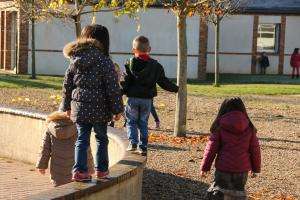Children's services has become a 'child rescue' service and should be renamed

Published by Professional Social Work magazine, 14 February 2022
Children’s services have become too focused on “child rescue” in opposition to parents and families and should be renamed, an influential new report says.
Social work must also be restored back to its “core values” within a better resourced system where the needs of families are met earlier and parents offered peer support and advocacy.
The report, Children’s Social Care – the Way Forward, was produced by The Parents, Families and Allies Network in partnership with parent groups and written by its co-chair Professor Andy Bilson, emeritus professor of social work at the University of Central Lancashire.
Among its calls for change is the creation of a new panel of lawyers to independently represent parents in family courts, which it describes as “frightening, archaic and heavily weighted to take the side of children’s services”.
In a damning critique, the report says the current system in England “alienates families and communities, fails to protect children and places older children at increased risk of involvement in gangs and sexual exploitation”.
As the government conducts a national review into the murders six-year-old Arthur Labinjo-Hughes and 16-month Star Hobson, the report urged against a repeat cycle of “escalating investigations and blaming parents”.
Such responses in the past, it says, have resulted in “authoritarian” interventions and more children removed due to “defensive practice and an increasing culture of child rescue” and a focus on adoption.
The report calls for the testing of strategies that “shift power from government and public services to parents”. It also says the the “risk” focused and “defective” Working Together statutory guidance on inter-agency safeguarding should be replaced with more “family-focused guidance”.
“Government needs to create a clear vision based on partnership, humane practice and family support,” says the report.
“Blame and risk orientation are embedded in Working Together, local procedures and the language of child protection. These need to change.”
It continues: “Parents should be actively involved in all decisions that affect them, especially the co-production of services.
“Parents should have a role in the governance of children’s services through advisory boards or in a fashion similar to parent governors in schools.
“A system of parent advocacy provided by parents with lived experience should be available for parents in all stages of the system. This is vital to more humane, focused and supportive practice.”
The report says a lack of investment in therapeutic services for those involved in care proceedings is “arguably setting up many parents to fail”. It is also a “false economy” because the cost of long-term care “far exceeds the cost of solving the problems”.
The report condemns the timescales given to parents to make changes as “frequently unrealistic” and with a lack of support services to prevent care proceedings starting.
Among ways forward to promote parent participation, would be "a new name for chidren's services that demonstrates a focus on families and ends the view that children's services aare for the chid in opposition to the child's parents and families."
Permanence
The report criticises England’s focus on closed adoptions where all ties are lost with biological families. Continuity of relationships matter, it says, but despite the researched benefits of open adoption, this is “the exception rather than the rule”. Promotion of adoption is “associated with a growing culture of rescue and parent blame”. The report says adoption and special guardianship should be predominantly open.
Domestic abuse
Women experiencing domestic violence are too often threatened with having their children removed. Parent advocacy is needed and a “social model” approach which comprehends inequalities, suffering and shame.
Disabled children
Despite a fifth of children’s social care assessments involving a child with disability, including mental health and learning difficulties, there is a lack of knowledge of disabilities among social workers, says the report.
Families describe having lots of meetings and assessments that rarely result in support. The findings coincide with a report showing a third of families with disabiled children have been forced into debt to fund their children's education due to a lack of statutory provision. More than ten per cent have between £5,000 and £10,000 on private reports and advice .
Social work
The report says: “Social work has increasingly become engulfed in child protection investigations and care proceedings and the bureaucracy that these involve.”
Parents experience social work as “all meetings and no provision” and workers having to “rush off”, with frequent changes of worker and lack of continuity of services.
Spending less time on investigations and more time providing support has proved successful in some authorities, such as Leeds, says the report.
Legal representation
Parents already disadvantaged within a system “weighted to take the side of children’s services” are often having to face family courts alone due to cuts to legal aid.
The report highlights practice in New York where families facing court have a lawyer, a social worker and a parent advocate. This should be replicated in England backed by a panel of independent lawyers and improved legal aid.
Child in need services
Assessments focus mainly on risk of harm rather than identifying needs within the Working Together guidance.
New guidance should separate section 47 safeguarding investigations from children in need assessments which should lead to practical support.
The report concludes: “We need to create a space for transformational change in children’s social care and the wider child welfare system.
“We need to promote parent participation and culture change through parent advocacy and a dedicated workforce to co-produce services, promote partnership and establish new ways of responding to the difficulties children and families face.”
Its publication comes ahead of England’s Independent Review into Children’s Social Care which is due to make its recommendations this spring.
